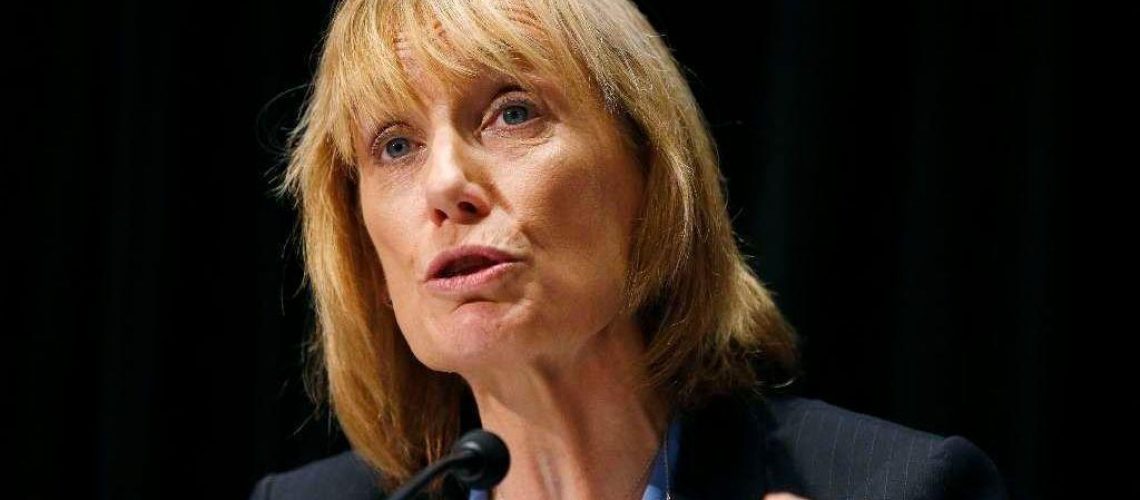In most markets, when a buyer and a seller can’t settle on a price, they walk away. Medicine is different.
Doctors and insurance companies often sort out who owes what only after a patient has been treated, especially in emergencies. When they disagree, patients can end up with unexpected bills they can’t pay.
Efforts to keep patients from getting stuck in the middle are gaining steam in Washington. Six Senators sent a letter to health plans and providers this week seeking data on surprise medical billing. President Donald Trump pledged in January to stop unexpected medical bills.
One possible solution, already in place in New York and a handful of other states, puts insurers and doctors through so-called baseball-style arbitration. Each side submits a price, and an arbiter chooses one. Both sides are bound by the decision. Patients’ charges for out-of-network care are limited to what they would owe to in-network providers.
By forcing an arbiter to pick an offer, rather than forging a compromise, both parties are, in theory, encouraged to moderate their bids.
“If it’s loser-pay, you’re going to make a reasonable offer,” said Vidor Friedman, president of the American College of Emergency Physicians. “If you’re acting outrageously in the marketplace, you’re going to lose every time.”
For policymakers, final-offer arbitration can address situations where markets break down without the government stepping in to set prices. “You’re actually trying to simulate, if you had a market, which you don’t, where might the market come out,” said Paul Ginsburg, a health economist and director of the USC-Brookings Schaeffer Initiative for Health Policy.
In 2015, New York state adopted a law that limited patients’ costs for unexpected bills to what they would owe to an in-network doctor and set up arbitration to resolve contested charges between health plans and doctors. More than 1,100 disputes have been resolved under the new process, according to the latest available data from the state. Other states including New Jersey and Illinois use similar approaches.
Friedman said the New York policy has worked, and arbitration is an element of the plan the emergency physicians group proposed in late January.
Insurers also support the New York state process, said Leslie Moran, senior vice president of the New York Health Plan Association. The number of cases that go to arbitration is relatively small. “A good number settle, which was part of the goal, too,” Moran said.
Half of Americans have received an unexpected medical bill, according to an August survey by the research group NORC at the University of Chicago. The problem is especially acute in situations where patients can’t shop ahead of time. One-fifth of emergency-room admissions triggered a surprise bill, economists from the Federal Trade Commission reported in 2017.
A few proposals in Congress would cap what patients owe and make rules for settling disputed charges. A bill sponsored by Sen. Bill Cassidy, R-La., a physician, would set out-of-network reimbursements based on typical payments for the same services in the area. Two other Republicans and three Democrats have signed on to that proposal.
Another proposal from Sen. Maggie Hassan, D-N.H., relies on baseball-style arbitration, similar to New York state’s law. Hassan’s bill would go further by requiring the results of arbitration to be made public. That could bring some transparency to prices, potentially helping inform future disputes.
“You have health plans, insurance plans and providers negotiating about the fate of a patient who has very little control over this level of coverage and pricing,” Hassan said in an interview. “We also have a system with very little transparency in pricing, and so it isn’t operating as a typical market system might.”
Others have suggested the binding arbitration might be a solution to broader problems in health care markets. Mark Miller, a health-policy expert at the Laura and John Arnold Foundation, suggested in recent Senate testimony that Medicare could use the process to determine fair prices for expensive new drugs with no competitors. At the hearing, Cassidy called the idea “intriguing.”
——————————————————
Photo courtesy of: Chicago Tribune
Originally Published On: Chicago Tribune
Follow Medical Coding Pro on Twitter: www.Twitter.com/CodingPro1
Like Us On Facebook: www.Facebook.com/MedicalCodingPro







